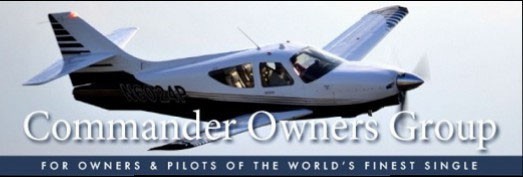Lawrence Massachu$etts
- Aircraft Year
- 1975
- Aircraft Type
- 112/A
- Reg Number
- N1226J
- Serial Number
- 226
Re: Swift Fuels
The last update I had on this subject was that the FAA is moving along close to schedule with testing two 100 octane unleaded drop in replacements; one from Swift and another from Shell. There is no thought of not bringing 100 octane to market.
That being said, there's nothing to stop a manufacturer like Swift from bring along another fuel with a lesser octane sooner. I'm guessing their planning may have assumed a continuation of recently higher fuel prices prior to the current supply environment (which looks very unlikely to fundamentally change for a long time).
I think an FBO would be crazy to either 1) stop selling 100LL and switch to 94, or 2) spend what's probably hundreds of thousands of dollars to add another fuel farm which only a limited number of aircraft can use.
So no need to worry about any of this at this time. As Pat mentioned, this is just Swift doing some marketing.
The last update I had on this subject was that the FAA is moving along close to schedule with testing two 100 octane unleaded drop in replacements; one from Swift and another from Shell. There is no thought of not bringing 100 octane to market.
That being said, there's nothing to stop a manufacturer like Swift from bring along another fuel with a lesser octane sooner. I'm guessing their planning may have assumed a continuation of recently higher fuel prices prior to the current supply environment (which looks very unlikely to fundamentally change for a long time).
I think an FBO would be crazy to either 1) stop selling 100LL and switch to 94, or 2) spend what's probably hundreds of thousands of dollars to add another fuel farm which only a limited number of aircraft can use.
So no need to worry about any of this at this time. As Pat mentioned, this is just Swift doing some marketing.
